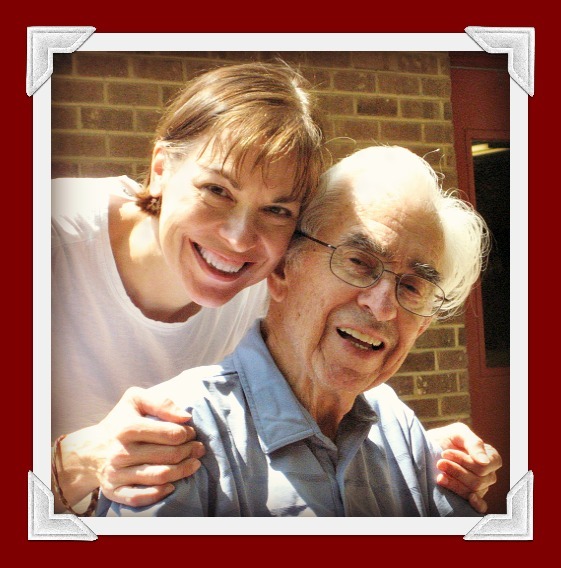"So are you going to be tested?" my 19-year-old daughter asked me over dinner. This came after a string of questions about Alzheimer's: What are the first signs? When do they appear? Do people with the disease know they have it?
This dinner conversation had started on a much lighter topic -- travel. I'd been describing her brother's summer plans. After I'd finished, Eleanor looked at me levelly: "I know. You told me already."
That's when her Alzheimer's questions began.
Well, I knew I'd told someone recently. But with three teenagers rolling in and out of the house and three more 20somethings in touch by phone, not to mention a husband, colleagues, far-flung siblings, and assorted walking buddies and coffee pals, there are a lot of moving parts in my world. I'm not always exactly sure who's heard what.
So this kind of repetition doesn't scare me. Nor does it unnerve me when I can't find my yoga pants, my keys, or (most often!) my sunglasses. I don't panic when I lose track of why I came into a room or mix up the names of the kids' friends. And I'm not the least bit concerned that I can't balance my checkbook. I never could!
These are not the warning signs of Alzheimer's. These are the signs of an overloaded middle-aged brain, of distraction, of lousy math skills, of having daughters who raid my closet without asking.
It's smart to know the red flags of Alzheimer's. Realizing the difference between what's normal and what's truly worrisome can help you ID a problem early and avoid the damage of denial. So I can't blame my daughter for being on the alert. More concerning than my current lapses, for example, would be if I didn't know what keys were for. Or if I forgot how to use a check or an ATM. My kids can legitimately worry when I begin avoiding conversations entirely or get lost on my walks.
It could happen. The reality is that millions of us will develop these symptoms. Maybe me. Scary. And even if a cure were found tomorrow, it may already be too late. The elaborate cell-dances that keep us sharp to oldest age have already begun to misstep in too many brains, 10 or 20 years before we'll start repeating the same story, not just to the same person but at one-minute intervals. Very scary.
As much as I dread it happening to me, here's what really frightens me about Alzheimer's: That my 19-year-old will continue to be so terrified by this disease that she avoids getting close enough to it to truly understand it.
I'm certain she'll still love me -- as I loved my dad, my Gram, and my mother-in-law long after they were kidnapped by dementia. But will my daughter truly appreciate the whys behind my odd words and behaviors and engage with me in spite of them?
Will she continue to consult me and tell me things, rather than write me off as soon as the withering of my brain is confirmed? (Dementia, after all, is a long continuum.)
Will she know that when I make a mistake, I don't need to be corrected like a child, or talked down to like a child? (I'm not a child, though I will make many mistakes.)
Will she look for reasons why I'm upset or anxious if I can't tell her, so I won't have to feel so alone and misunderstood?
Will she be motivated to help me find ways to engage with the world, as best I can?
Will she refrain from talking to me as though I were not in the room when I still am?
Will she still hang out with me and talk about the day and her brother's plans, even when I don't remember, even when I don't appear to be listening?
Will she find the courage to advocate for the compassionate care of those who can no longer do so themselves?
Will her reservoir of respect, empathy, and intellect be her guide? Or will she be misled by fear and misconceptions?
The disease is not yet preventable or curable. But damaging attitudes around it are.
That's the beauty of efforts like the Dementia-Friends movement in the UK, which is helping to educate millions to not be afraid of someone with Alzheimer's. That's the magic in those professionals and family caregivers who bravely forge past the cliches about the disease to connect with the person beneath it.
The more Alzheimer's is demystified, the less afraid we can all be. Sad, yes, but at least not scared.
We do have plenty enough to fear about the heartbreak that is Alzheimer's: the sheer numbers of its toll, that there won't be enough community resources to go around, that our children risk bankrupting their futures to ensure care, that too many good-intentioned professional caregivers are untrained and underpaid. All that is, frankly, terrifying.
Let's not make things worse by giving in to fear itself.
[Photo: Me and Dad, a pic taken the year before he died which also appears on the back cover of Surviving Alzheimer's.]
Earlier on Huff/Post50:

